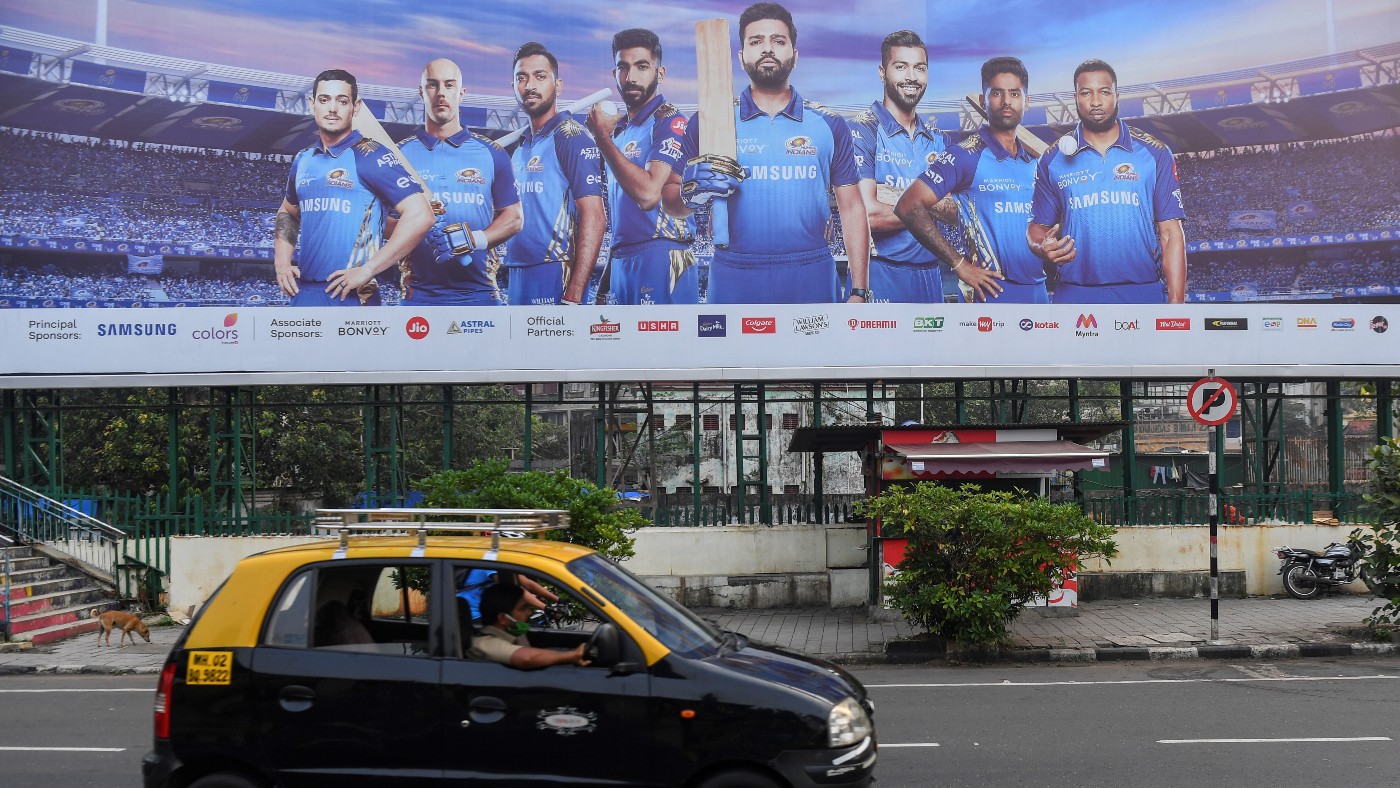Instant Opinion: it is time for powerful political advisers to ‘come out of the shadows’
Your guide to the best columns and commentary on Wednesday 27 May

A free daily email with the biggest news stories of the day – and the best features from TheWeek.com
You are now subscribed
Your newsletter sign-up was successful
The Week’s daily round-up highlights the five best opinion pieces from across the British and international media, with excerpts from each.
1. Daniel Finkelstein in The Times
on casting some light on the power behind the throne
The Week
Escape your echo chamber. Get the facts behind the news, plus analysis from multiple perspectives.

Sign up for The Week's Free Newsletters
From our morning news briefing to a weekly Good News Newsletter, get the best of The Week delivered directly to your inbox.
From our morning news briefing to a weekly Good News Newsletter, get the best of The Week delivered directly to your inbox.
Top advisers should come out of the shadows
“Who advises the prime minister is one of the most consequential choices the occupant of No 10 ever makes. Probably the biggest change in the policy and outlook of any modern administration came about when Theresa May’s chiefs of staff, Nick Timothy and Fiona Hill, were replaced by the more liberal Gavin Barwell. And making Dominic Cummings his senior adviser was one of Boris Johnson’s biggest calls... Appearing in his own press conference was probably against the adviser’s code. And by convention senior advisers are not called by select committees. In America senior presidential advisers can appear on the media, speak on the record and appear before congressional committees. They have real power and that power can be scrutinised. We should have that here. There should be limits but it is absurd that the first chance most people got to take the measure of one of the most powerful people in the government was in a press conference answering questions about when his son needed to go to the toilet.”
2. George Monbiot in The Guardian
on the slow sell-off behind the pandemic planning
A free daily email with the biggest news stories of the day – and the best features from TheWeek.com
Tory privatisation is at the heart of the UK’s disastrous coronavirus response
“Amid the smog of lies and contradictions, there is one question we should never stop asking: why has the government of the United Kingdom so spectacularly failed to defend people’s lives? Why has ‘this fortress built by Nature for herself against infection’, as Shakespeare described our islands, succumbed to a greater extent than any other European nation to a foreseeable and containable pandemic? Part of the answer is that the government knowingly and deliberately stood down crucial parts of its emergency response system. Another part is that, when it did at last seek to mobilise the system, crucial bits of the machine immediately fell off. There is a consistent reason for the multiple, systemic failures the pandemic has exposed: the intrusion of corporate power into public policy. Privatisation, commercialisation, outsourcing and offshoring have severely compromised the UK’s ability to respond to a crisis.”
3. John Longworth, former Brexit Party MEP, in The Daily Telegraph
on the question of why the UK locked-down at all
How can lockdown be justified in the first place?
“The government has delivered a socialist-style spending programme that they said would have bankrupted the country under a Corbyn administration, coupled with a curtailment of liberty that the fascist government from whence this virus originated would be proud. A country incidentally who are now seemingly being punished for coronavirus through the further limiting of the role Huawei in our 5G Network, not because they are a dangerous dictatorship, for whom the economy is an arm of the military and who don’t play by the rules. Topsy-turvy. The government have boosted idleness, squeezed the private sector and promoted the state, even when the state was plainly failing in its centralised control, for example track and trace, modelling the risk, laboratory testing and predicting hospital capacity. While Scandinavian countries have exhibited the grit and phlegm for which our British and Commonwealth VE generation were famous, our 21st Century government, the health and safety first authorities and the woke media have scared the country witless into avoiding economic activity.”
4. Steve Jeffels, doctorate of business administration at The University of Manchester, on HuffPost
on offering a lifeline to those worst hit by the pandemic slump
Universal Basic Income Is The Way Forward
“Chancellor Rishi Sunak’s policies – notably the furlough scheme – are set to be eye-wateringly expensive. Latest estimates suggest that the number of people being paid by the government is about half the workforce. Inevitably, Universal Credit applications have soared. However, there are many gaps and more problems to come. Those who are only recently self-employed do not qualify, nor those on higher salaries or those who are remunerated in other ways. The chancellor is yet to announce his changes to the furlough scheme but they are likely to involve a requirement for employers to bear more of the cost which in turn is likely to lead to more redundancies. The number of hardship cases will increase. Perhaps this is the tipping point that UBI has been waiting for. The rules of the game that dictate government social security policy have changed as a result of Covid-19, creating the opportunity to conduct a comprehensive but time-limited experiment.”
–––––––––––––––––––––––––––––––For a round-up of the most important stories from around the world - and a concise, refreshing and balanced take on the week’s news agenda - try The Week magazine. Start your trial subscription today –––––––––––––––––––––––––––––––
5. Hartosh Singh Bal, political editor of New Dehli-based magazine The Caravan, in The New York Times
on the fatal shortcomings of the Indian government’s coronavirus strategy
How Modi Failed the Pandemic Test
“The starkest failure of Mr. Modi’s coronavirus strategy has been the devastation and misery it imposed on India’s informal sector workers, mostly people from impoverished villages, who work in Indian cities, without a safety net. Hundreds of thousands of migrant workers were left without wages after the lockdown imposed with a four-hour notice closed factories and businesses. They couldn’t pay rent; they didn’t have enough to eat. They looked toward their villages, where they could find shelter and food by relying on extended family. With the public transport suspended, the workers set out on foot, walking hundreds of miles in temperatures as high as 100 degrees Fahrenheit. In May alone more than 150 migrant workers walking back home have been killed in road or train accidents. As the lockdown is being partially eased, the migrant workers are now making the same journey they could have made two months ago when the cases in India numbered fewer than 1,000. Since some of the workers are serving as unwitting carriers of the virus to areas of low prevalence, they are greeted with alarm and apprehension in their villages.”
-
 The ‘ravenous’ demand for Cornish minerals
The ‘ravenous’ demand for Cornish mineralsUnder the Radar Growing need for critical minerals to power tech has intensified ‘appetite’ for lithium, which could be a ‘huge boon’ for local economy
-
 Why are election experts taking Trump’s midterm threats seriously?
Why are election experts taking Trump’s midterm threats seriously?IN THE SPOTLIGHT As the president muses about polling place deployments and a centralized electoral system aimed at one-party control, lawmakers are taking this administration at its word
-
 ‘Restaurateurs have become millionaires’
‘Restaurateurs have become millionaires’Instant Opinion Opinion, comment and editorials of the day
-
 Pope aide under fire for 'mystical orgasms' book
Pope aide under fire for 'mystical orgasms' bookTall Tales And other stories from the stranger side of life
-
 Thieves who stole shopping bag in for big disappointment
Thieves who stole shopping bag in for big disappointmentTall Tales And other stories from the stranger side of life
-
 Woman has one in 50 million pregnancy
Woman has one in 50 million pregnancyTall Tales And other stories from the stranger side of life
-
 The spiralling global rice crisis
The spiralling global rice crisisfeature India’s decision to ban exports is starting to have a domino effect around the world
-
 The sinister side to India’s fantasy gaming craze
The sinister side to India’s fantasy gaming crazefeature Fantasy gaming is booming in India, despite the country's ban on gambling
-
 India hoping to be fourth country to reach Moon after Chandrayaan-3 launch
India hoping to be fourth country to reach Moon after Chandrayaan-3 launchSpeed Read Rocket aiming to set its lander Vikram down near Moon’s little-explored south pole
-
 Captain Tom charity closes to donations amid daughter’s pool row
Captain Tom charity closes to donations amid daughter’s pool rowSpeed Read Hannah Ingram-Moore to appeal council order to demolish spa complex at her home
-
 Boris Johnson shocks UK by resigning from Parliament
Boris Johnson shocks UK by resigning from ParliamentSpeed Read